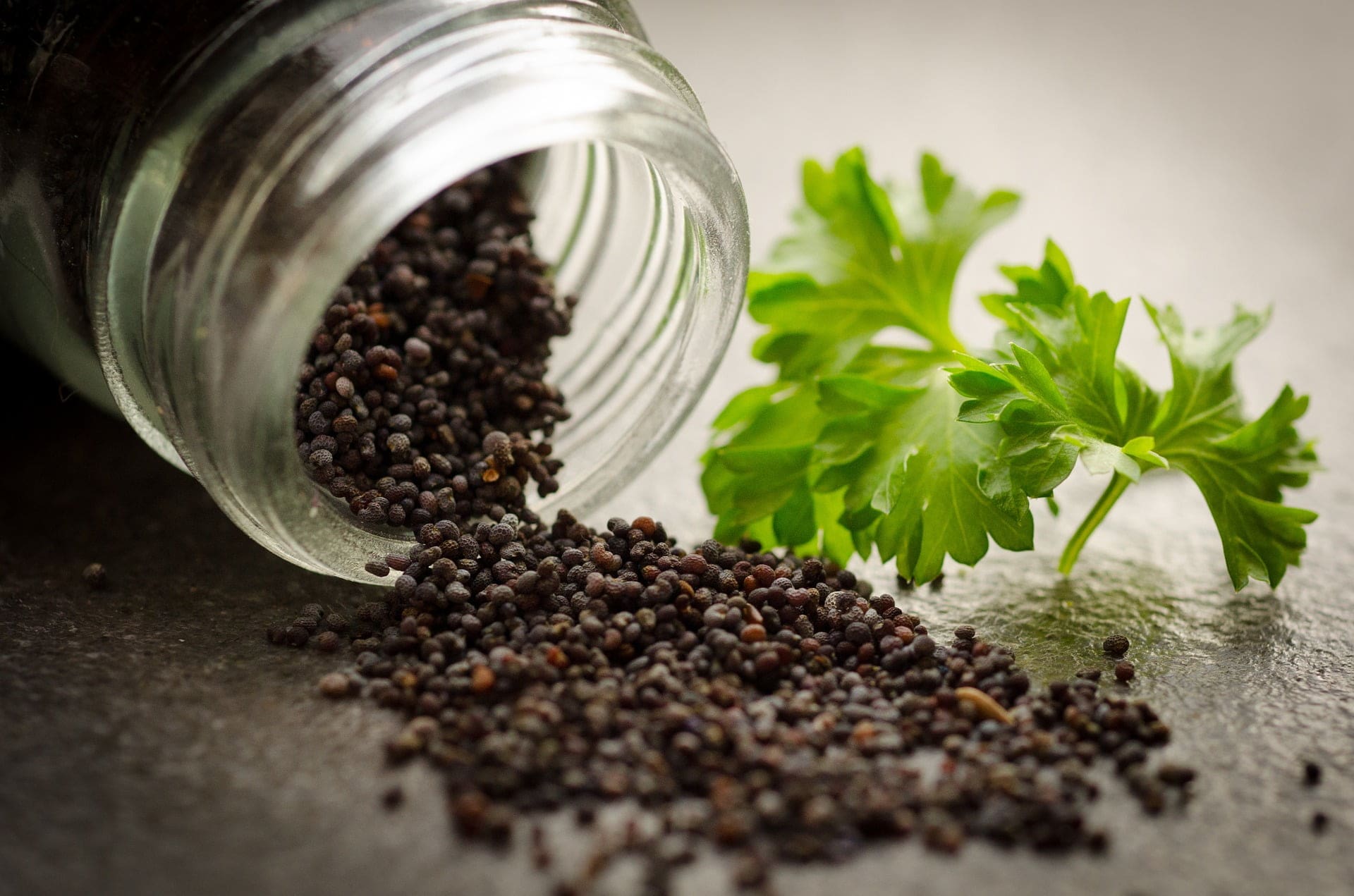
Poppy Seeds
Poppy seeds are one of the tiniest members of the spice family, but don’t let their size fool you—these little specks pack a punch when it comes to flavour and versatility. From baked goods to savoury curries, poppy seeds have been used in cuisines around the world for thousands of years. Let’s dive into what makes this spice so fascinating!
What Are Poppy Seeds?
Poppy seeds are the edible seeds of the opium poppy (Papaver somniferum), a plant with a long history in both medicine and cooking. These tiny, kidney-shaped seeds are harvested from dried seed pods and are usually black or blue in colour, though white poppy seeds are common in some regions.
Where Are They Used?
Poppy seeds appear in a range of dishes across cultures:
- European Baking: Think of poppy seed-studded bagels, breads, or traditional desserts like the Central European makowiec (a rolled poppy seed cake).
- Indian Cooking: In Indian cuisine, white poppy seeds (khus khus) are often ground into a paste to thicken curries or sprinkled over sweets for added texture.
- Middle Eastern Cuisine: Poppy seeds are a key ingredient in pastries and confections, like Turkish poppy seed rolls.
- Asian Cooking: In parts of Southeast Asia, poppy seeds are used as a garnish or flavour enhancer in stir-fries and rice dishes.
What Do They Taste Like?
Poppy seeds have a nutty, slightly sweet flavour with a hint of earthiness. Their mild taste becomes more pronounced when they’re toasted, which releases their natural oils and enhances their aroma.
How to Use Poppy Seeds in Your Cooking
- Baking: Stir poppy seeds into muffin, cake, or bread batter for a delightful crunch and subtle nuttiness. Lemon-poppy seed muffins are a timeless classic!
- Thickening Agent: Grind white poppy seeds into a paste and use them to thicken sauces, soups, or curries. This is especially popular in Indian and Bangladeshi cuisine.
- Sprinkling and Garnishing: Use poppy seeds as a topping for breads, bagels, and salads for a crunchy finish.
- Sweet Treats: Incorporate them into desserts like poppy seed rolls, strudels, or halwa for a sweet, nutty flavour.
- Sauces and Spice Blends: Toast and grind poppy seeds to create spice blends or as a base for savoury sauces.
Health Benefits of Poppy Seeds
Poppy seeds aren’t just delicious—they’re nutritious too. Here’s what they bring to the table:
- Rich in Minerals: Poppy seeds are a great source of calcium, magnesium, and iron, all of which are vital for strong bones and overall health.
- Packed with Fibre: Their high fibre content aids digestion and helps keep you feeling full.
- Healthy Fats: Poppy seeds contain unsaturated fats, which are heart-healthy and great for maintaining energy levels.
- Source of Antioxidants: These seeds also contain compounds that help fight inflammation and oxidative stress.
